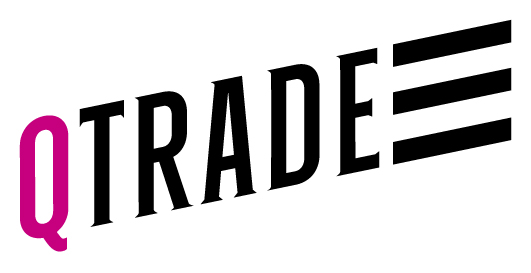Money Advice for Life
How to play the stock market
Investing directly in the stock market has become increasingly accessible, thanks in part to the rise of online platforms, such as Qtrade Direct Investing. This blog will guide you on how to make a plan for investing and help you manage your investments smoothly.
There are lots of reason why you may want to start investing directly in the stock markets:
Like many others, you may have thought to yourself, “If only I had bought Apple stocks in 2003” or “I wish I would have bought into Tesla or Amazon before they took off”.
You may have heard that it’s a way to potentially get rich quick.
You may be aware of a company that you believe is on the verge of a major breakthrough and want to be a part of it.
There's a company that you deeply believe in, both in terms of what they are building and how they are managed.
Whatever your reason is, it’s important you stop to reflect on why you want to start investing in the stock market. Your motivation will often determine your strategy, and your strategy can impact not only finances but also the emotions that come along with investing.
Are you prepared emotionally to invest on your own?
This is a crucial starting point because, like it or not, investing in the stock market can feel like riding an emotional rollercoaster. Many people start this journey without giving much thought or care to the emotional side of investing.
Investing on your own requires a strong heart, and having solid “emotional strategy” is just as vital as having a clear “investment strategy”.
To help you understand how your emotions can come into play a roll, take a moment to imagine how you might feel at the end of each scenario below:
Scenario 1:
You open up an investment account and allocate $1,000 to it. Following a recommendation from a friend, you choose a company that's anticipated to make significant gains this year. After a few weeks, you check your account's market value to find it has risen to $1,800. Pause for a moment and ask yourself "how do you feel?". It's likely you're feeling quite pleased or even thinking, "my friend really knows their stuff." Let's move on...
Scenario 2:
After celebrating the increase in your account, you're convinced your friend's advice as a sure bet. At the same time, you're about to go on a two-week camping trip up north, completely disconnected from any means of checking your account. Upon return, you eagerly log in to see that the market value has dropped to $600. How do you feel now?
Scenario 3:
Seeing your stock plummet to $600, you make the decision to wait it out. Unfortunately the next week brings further disappointment as it falls to $500. You conclude that maybe your friend's advice wasn't as solid as it seemed and choose to cut your losses, selling your stock and taking a $500 hit from your initial investment. A few weeks later, out of curiosity, you log in to find that the stock you sold has rebounded over your original $1,000. What flood of emotions washes over you as you reflect on your decisions up to this point?
These scenarios provide a range of emotional experiences that investors often encounter. They can be valuable in helping individuals recognize and prepare for the emotional aspects of investing.
Building an investment strategy
When it comes to building your investment strategy, there are several critical considerations to keep in mind.
Investing vs. gambling
It's crucial to shift your mindset if you’ve been thinking of the stock market as a form of gambling.
Unlike a game of chance, the stock market involves real companies with employees, customers, and business strategies. Each company you invest in means becoming a part owner, sharing in the successes and the challenges of that company. Remember, results don't happen overnight; successful companies like Apple and Amazon grew over years of hard work.
Don’t put all your eggs in one basket
Putting all of your money into a single stock is risky business. While a rising stock can lead to significant returns a decline can result in substantial loss. The key here is diversification. This means spreading your investments across different companies or even different industries. It helps spread risk and can lead to more stable returns over time.
Research & timeliness
Investing on your own means you're the portfolio manager. This implies doing your own research on companies. Who leads them? What's their business plan? How have they performed in the past? Having a clear understanding of the companies you invest in aligns your strategy with their business goals.
Additionally, set a timeline for your investments. Are you looking for short-term gains, or are you in it for the long haul? This time management aspect helps you stay focused on your goals and reduces impulsive decisions driven by emotions.
Final considerations: platforms, fees, advice & taxes
Choosing the right platform for your investments is crucial. Platforms like Qtrade Direct Investing™ offer convenience and accessibility. Pay attention to trading fees and any recurring charges. While investing on your own do-it-yourself model, consider seeking advice, especially for more complex options.
Remember, there are tax implications with investing. Gains need to be reported, and potential deductions may be available for losses. Take the time to understand investment-related terms (check out our Investment Technology 101 blog) and consult relevant resources during tax season.
Investing is a journey, and is crucial to approach with patience and a well-thought-out strategy.


Start your investment journey with Qtrade Direct Investing™
Disclaimer
Mutual funds and other securities are offered through Credential Securities, a division of Credential Qtrade Securities Inc. Credential Securities is a registered mark owned by Aviso Wealth Inc. Online brokerage services are offered through Qtrade Direct Investing, a division of Credential Qtrade Securities Inc. Qtrade and Qtrade Direct Investing are trade names and/or trademarks of Aviso Wealth Inc. The information contained on this webpage was obtained from sources believed to be reliable; however, we cannot guarantee that it is accurate or complete. This information is provided as a general source of information and should not be considered personal investment advice or a solicitation to buy or sell any mutual funds and other securities.









